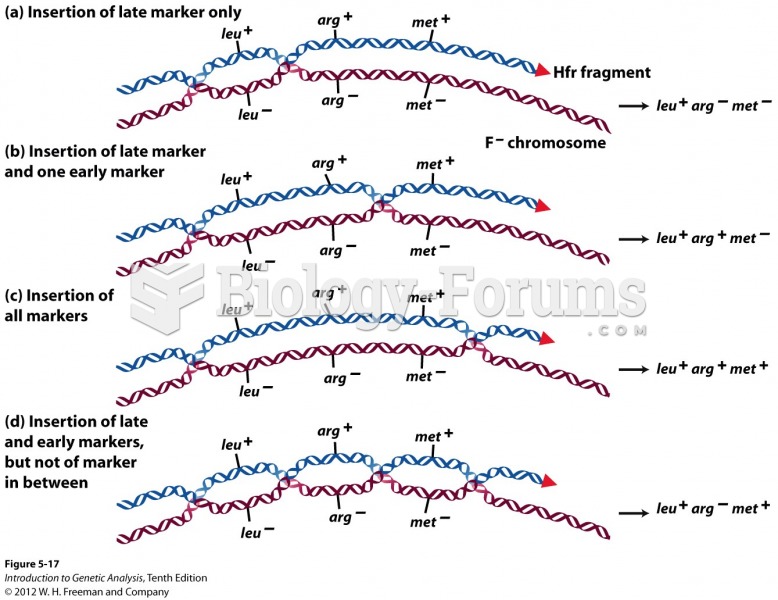|
|
|
Increased intake of vitamin D has been shown to reduce fractures up to 25% in older people.
An identified risk factor for osteoporosis is the intake of excessive amounts of vitamin A. Dietary intake of approximately double the recommended daily amount of vitamin A, by women, has been shown to reduce bone mineral density and increase the chances for hip fractures compared with women who consumed the recommended daily amount (or less) of vitamin A.
The first oral chemotherapy drug for colon cancer was approved by FDA in 2001.
Amphetamine poisoning can cause intravascular coagulation, circulatory collapse, rhabdomyolysis, ischemic colitis, acute psychosis, hyperthermia, respiratory distress syndrome, and pericarditis.
The immune system needs 9.5 hours of sleep in total darkness to recharge completely.
 The universal grammar and emergent grammar viewpoint lead to very different scenarios of the evoluti
The universal grammar and emergent grammar viewpoint lead to very different scenarios of the evoluti
 The world has been horrified recently at a U.S. Congress so polarized and paralyzed that it cannot p
The world has been horrified recently at a U.S. Congress so polarized and paralyzed that it cannot p





